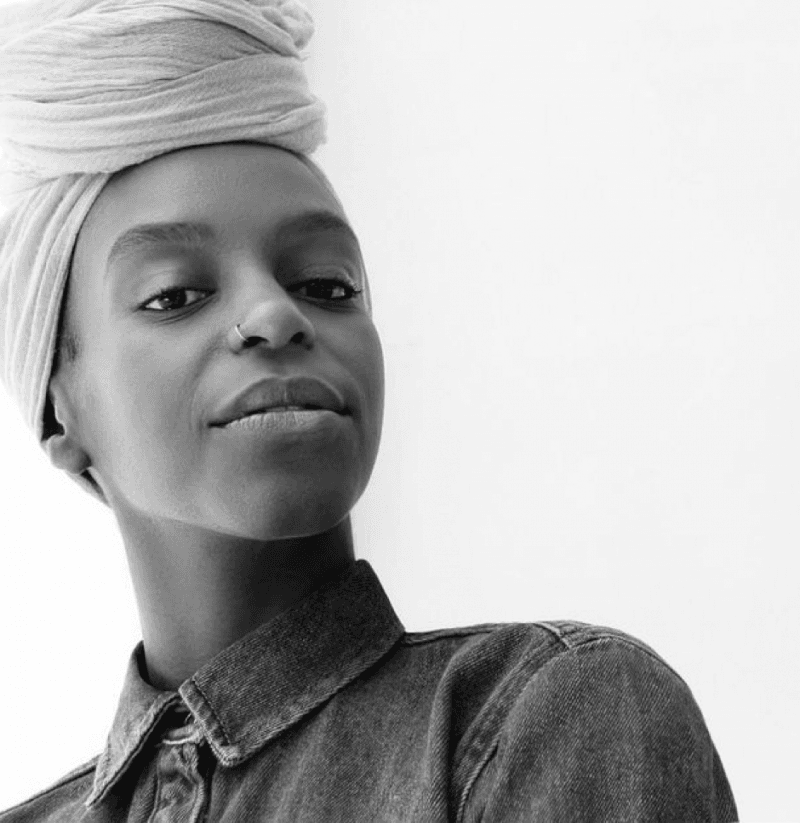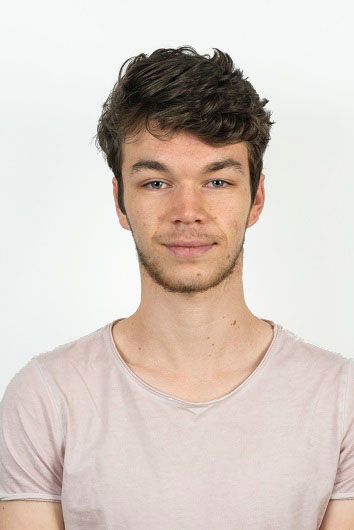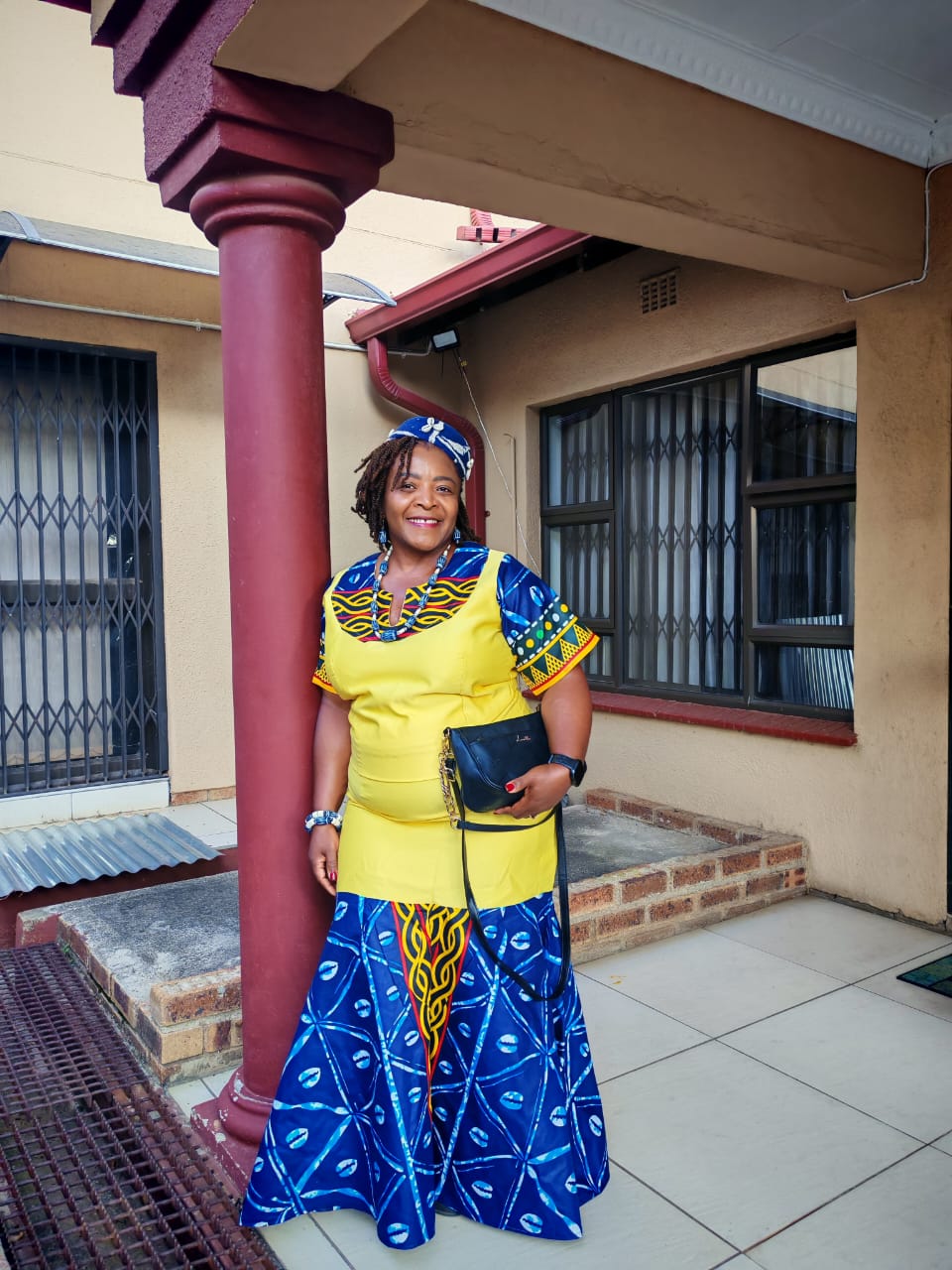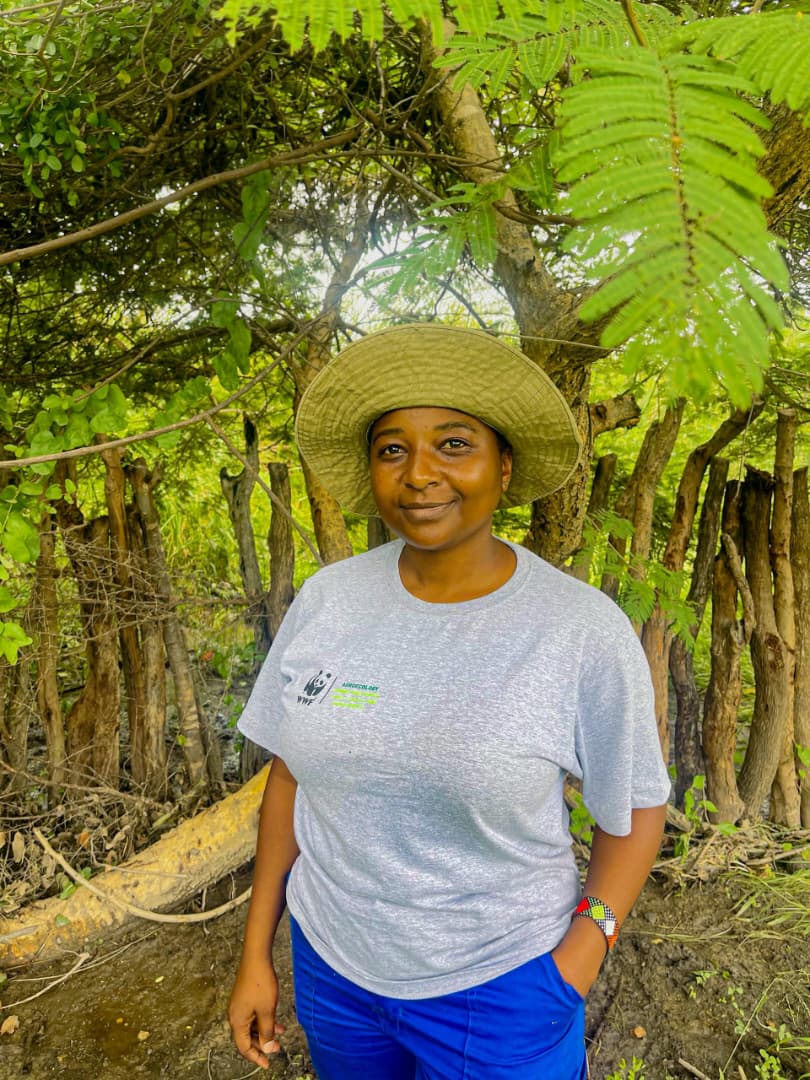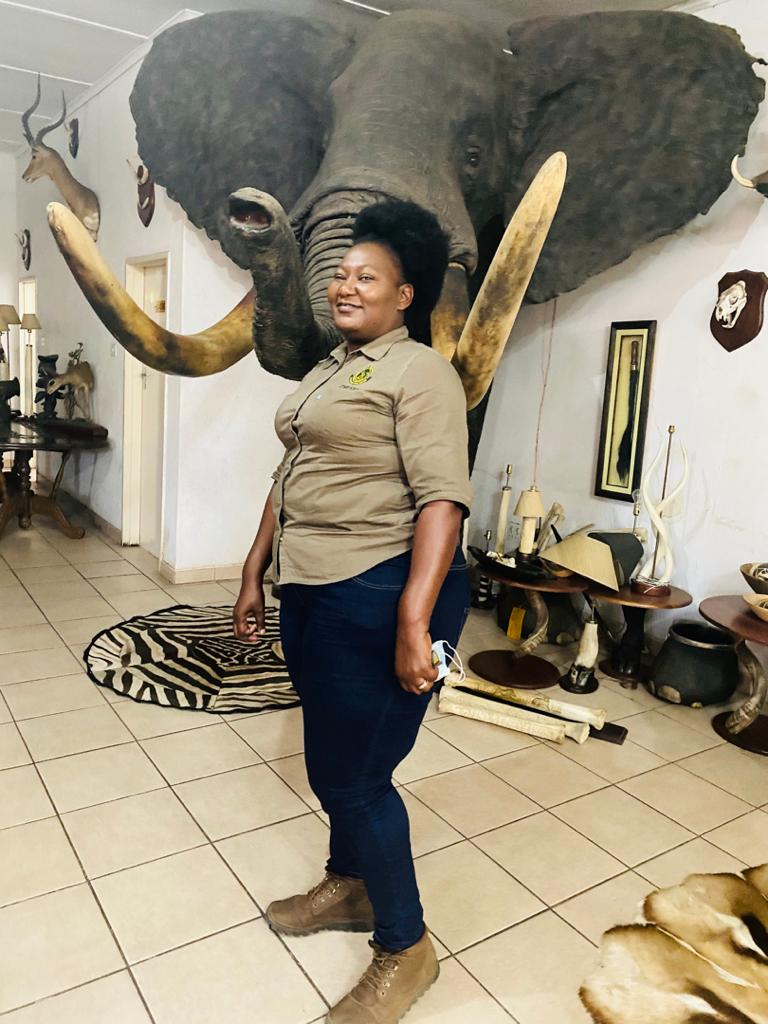We must not underestimate how much influence visual representation and especially the lack thereof has on people.
As a child of both Africa and Europe, Dalilla Hermans is perfectly positioned to give us insights into how it is to grow up in the Old Continent as a person of colour. Born in Rwanda, she moved to Belgium due to the genocide when she was 2 years old. She was adopted by a Belgian couple who raised her with a lot of love and affection. Nevertheless, because of the colour of her skin, she faced many tough situations and has endured a lot throughout her life. In 2014, Dalilla recounted, in an open letter, the verbal and physical abuse she’d been through growing up and living in Flanders, Belgium.
The details were chilling.
The letter sparked a chain of events that led the now 34-year old to become one of Flanders’ most notable activists when it comes to matters of race. Two children and three books later, Dalilla talks to Niels Tulleneers about her career, experiences and the book she wrote to her son: 'Letter to Cooper and the World'.

Had you always wanted to be a writer?
Absolutely not. As a student, I studied many things but I never finished anything. My longest period in one field of study was journalism but I never graduated. Few journalists actually have; it is often more important to have a critical vision of society. Of course, you have to be able to write so I don't feel as if I am missing the diploma.
As a student, I was always doing volunteer work. On top of that, I received a job offer to work fulltime as a receptionist at Het Paleis in Antwerp. I worked for eight years in the youth sector, first as a training assistant, then as a communication officer and in the end, I was a press officer of the Flemish Youth Council. After my open letter in 2014, I was asked by a publisher to write a book. I accepted the offer. You could say that I became a writer by writing a lot and not by studies or career ambitions.
During the 2014 elections, you were on the list for ‘Groen’ (a political party with great interest in nature). Was this linked to your career?
No. At the time my work had a lot of focus on youth policy, because of this, I often came in contact with politicians. In addition, political parties are always looking for candidates who reflect the various societies, so several parties asked me regularly whether I was interested in participating.
At first, I always refused, but after Cooper’s birth in 2013, I started to think about our society tremendously. I wanted a more beautiful world for him and I also wanted to have some control over that world. I was able to see the various party programs and I identified most with the vision of Groen, especially because of their social points of view.
I had only become a mother recently and was planning for my wedding which was to take place three days after the elections. This left me with little time to campaign. During the moments that I did campaign, I came to realize that politics is not for me because it is hard to remain honest.
Despite this, I am very concerned with politics but mostly at the policy level. I try to influence policy-makers positively.
How did you come to the idea to start your book in 2017?
After my first letter, I started working as a writer, where I made an interview series, The Race Files. At the same time, I got a phone call from a publishing house asking me to write a book. My first idea was to bring all those interviews together, but the publisher found my own story more interesting and said that I had to write about myself. However, it was difficult to just write down my own story until I read Between The World and Me by Ta-Nehisi Coates, a book about the Black Lives Matter movement. The author writes a letter to his fifteen-year-old son. That immediately changed something for me, because it was Cooper who made me aware of all these things in the first place. By writing my child a letter it suddenly became much easier and so I managed to write the book in a very short time.
Cooper himself goes to a multicultural school, so he doesn't deal with racism as much, and even if he does, he is too young to recognize it. At home, we always make it an open topic and he knows that he can talk to us about it, if necessary.
When do you want him to read the book?
At first, I had the age of fifteen in my head but children nowadays are evolving faster and the book is not too difficult to understand so he can read it when he is in secondary school. He actually has to read it when he is an adolescent, so he can understand me at certain times when he thinks I am an annoying mother (laughs).
Do you see "Brown Girl Magic" as a sequel to "Letter to Cooper and the world"?
No, Brown Girl Magic is something completely different. It is a book for small children, written in the closed-form and with beautiful illustrations. It's about a girl who constantly gets bullied at school and things only change when her older sister explains to her how beautiful she is. Actually, it's a story to empower children, to make them aware of the fact that they are all beautiful in their own way. The reason I wrote it for brown girls is that there is little representation for them in the media.
You were born in Rwanda and your children all have African names. How strong is your bond with Africa still?
My children are still young and they haven’t been to Rwanda yet (consciously) but they know very well that I am from Rwanda and that it is also a part of them. They are proud of their African clothes and when they wear them, they feel special in a fun way so yes, that bond definitely does exist.
As far as racism goes, do you see a change between 2014 and now?
Yes, most certainly and in two directions. On the one hand, there is a hardening, with even more explicit racism that is still rising. On the other hand, there is a much bigger counter-movement, which is much louder and more visible. Before, there were no other black opinion leaders while there are dozens of them today. Many people have also woken up and find the message important. I am now telling my story in small villages all over Belgium, where people are coming just to listen to me. That was unthinkable four years ago. A lot has changed in a positive sense, but that goes hand in hand with a counter-movement that I am sometimes afraid of.
So we are drifting further apart?
Correct. You can say that there is a silent majority, a large group of people who don’t say much. On the one hand, there are pushers, who want to get people from the silent majority behind them with radical messages. On the other hand, there is a counter-movement against radical activists. Above these two groups, there are bridge builders who translate the two messages and try to keep the people from the silent majority in the middle.
People often see me as a pusher, someone with an extreme opinion but I am not a pusher at all. I am in the middle. I can see that half of the people in the middle nowadays have had enough of extreme racism and they want to take their own initiative to do something. This was very unlikely a few years ago. The majority of the Flemish people are silent but have their heart in the right place.
What would you say is the best way to respond to racism?
You just need to do something, anything at all, no matter what. Do what suits your personality but make sure you do something. Just talking to the victim is a great step. That way you give a signal that you don't think what happened is okay and that you are there for that person, without having to conflict with others. People often get paralyzed because they think they should react angrily against the offender and then feel like they've failed if they don't. But this is not the case. The only thing you shouldn't do is freeze and go home without having done anything. You can also make non-verbal statements. If, for example, racist jokes are made, you can show through your attitude that you disagree.
In my book, there are stories about skinheads who peed on me and people who threw beer and glasses on me. This was shared in the media and was very shocking to many people. The most traumatic for me, however, was another story that received less attention. As a teenager, I sat on the bus going home while eating a sandwich, the driver noticed it and angrily said that this wasn’t allowed. When I said that I did not know, it got even worse and he said that 'it is typical for your kind of people'. He then stopped the bus and said that I had to get off. The fact that a bus full of adult people didn’t do anything at all made me feel very lonely. If someone had said something or had disembarked with me, it would have made a world of difference to me. But no one did anything.
Often jokes are made about people who are from different origins. Where should we draw the line between humour and hurting someone?
Everything revolves around context. I know comedians who try to spark controversy, and they are so good at it. The problem is that they unwittingly give other people legitimacy to say things that are not funny and therefore racist. I think that sometimes they are not fully aware of the responsibility they have. Apart from that, I think humour is fine, I certainly don't want to censor anything.
In general, comedians and humorous programs should think about their role and the message they bring. People can easily receive a wrong message because of humour, after which this false idea persists in their minds and that makes my work more difficult.
I constantly think about what I'm going to say and what impact it might have and that is something that comedians should do too.
An example of good humour is satire. There is 'kicking-up', where you laugh with the person who has power, who stands above you and that's fine. 'Kicking-down', on the other hand, is the reverse. It is much easier. You use humour as an excuse to mock people who have less power; I don't see this as satire. Jeroom Snelders does kicking-up by mocking racists but he does this so subtly that many people do not realise it.
Nowadays it is popular among black people to go to such extremes as having their skin bleached. What is your take on this?
I find it extremely unfortunate, it hurts my heart a little. Ultimately, this is also a result of a structural lack of representation. It has less to do with racism because bleaching-products are very popular in Africa where the typical anti-black/pro-white racism doesn’t exist so much. The beauty ideal and the image of power and money, however, remain mostly white. More successful black role models, both light-coloured and dark-coloured women, would help. That's why I was so pleased with Black Panther. That movie means so much to Black Pride worldwide. People saw beautiful, strong women who were black, with traditional hairstyles and clothes.
You can compare it to Asian women who had eye surgeries to look more Western until the movie Crazy Rich Asians came out and they saw that they are naturally beautiful too. We must not underestimate how much influence visual representation and especially the lack thereof has on people.
Therefore, imaging is very important to me and I do everything to prevent colonial imaging because it weighs super hard.

"Black Panther meant so much to black pride worldwide. People saw beautiful, strong women who were black, with traditional hairstyles and clothes".
Image: Marvel Studios, Disney
In your book, you explain that as a child you wanted to be white. How do you feel about this now?
I fully understand it, especially if you know where I grew up. I lived in a village where everyone besides my sister, me and a handful other adopted children was white. I wasn't even concerned with my skin colour, it was more the feeling that I didn't want to be different.
That is why I understand it. But now I think it is a pity that I wasted a lot of time on it. I could have used that time to love myself more and to be happy. It took me a long time before I could get that idea out of my mind, until my fifteenth or sixteenth birthday. Around that period I got a more diverse circle of friends and I discovered and read a lot about the Civil Rights Movement, in which I developed a black self-awareness and became proud of my skin colour.
Furthermore, you discuss reverse racism and the fact that it is so difficult to explain to many people. What is the difference between real and reverse racism?
The problem is that there is no socially agreed, approved definition of racism. There is one but not everyone follows it. Everyone has unconscious prejudices.
During the Pukkelpop incident (a group of boys sang racist chants towards a black girl during Pukkelpop, one of the biggest summer festivals in Belgium), I was very angry because the victim was portrayed as a racist because she had previously tweeted about the fact that she did not like white people. She is someone who has always been oppressed and has been confronted with a lot of racism, making her angry with the people who did it to her and as a result she tweeted about it when she was young. It is impossible to compare this to a large group of people who pick her out because of her skin tone and physically attack her.
As long as there is no component of power there can be no racism. In this case, we talk about stereotypes or unconscious prejudices. That is why I rarely call anything real racism, and I am very much aware of that, but people often don't understand this.
Reversed racism and the accompanying sentiments exist and can be as persistent and offensive as in real racism. However, it is impossible to have the same influence from a suppressed position. A woman who, in the wake of the MeToo movement, says that all men are bad, is not the same as a man who says that all women are stupid. It is both generalized and wrong, but it is not the same because the power ratio is completely different. Men are generally not frightened when they walk to their cars in the evening, women generally are.
Many white people use the N-word because they find that it sounds better and that is their excuse for using it as well. What message do you have for these people?
They shouldn’t ‘think’ it sounds better at all and it isn’t even their call to make. If black people say they shouldn't use it, they must accept that. It doesn't even matter if they think it sounds better or not because it's not about them. Besides, it is also about the historical context. That word was first used to describe the load of a slave ship and that’s all there is to say about it.
Often you hear that black Americans use it themselves.
That is true and I do not want anyone to use it on me- not white people, not black people. But it is about reclaiming words. Black Americans have taken the word back, so they now own that word. At the same time, they removed the negative strength from the word. That is why I understand them, although I would prefer that nobody uses it anymore.
Also, the context in America is different than the context in Europe. The word is used differently and few people here know the history of hip-hop. That is also the reason I did not go to Kendrick Lamar's performance. Because so many white people were singing the N-word without realizing what it means, during a performance of what might be the most critical, self-conscious black rapper there currently is. It bothers me tremendously that this is not being expressed enough.
To avoid confusion, let's just drop that word. Completely. Done.
Read Dalilla Hermans open letter here

